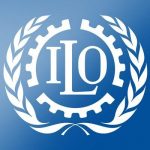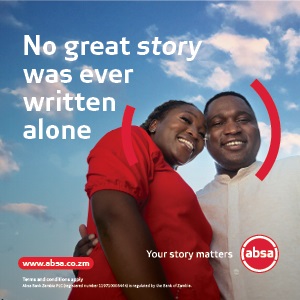
ILO
Under article 4.2, paragraph (e) of the Staff Regulations, the filling of vacancies in technical cooperation projects does not fall under Annex I of the Staff Regulations and is made by direct selection by the Director-General.
In order to support the best informed process in the filling of the present vacancy by direct selection, the ILO invites interested candidates to submit their candidature online by the above date.
Technical cooperation appointments are not expected to lead to a career in the ILO and they do not carry any expectation of renewal or conversion to any other type of appointment in the Organization. A one-year fixed-term contract will be given. Extensions of technical cooperation contracts are subject to various elements including the following: availability of funds, continuing need of the functions and satisfactory conduct and performance.
The following are eligible to apply:
ILO Internal candidates in accordance with paragraphs 31 and 32 of Annex I of the Staff Regulations.
External candidates.
Introduction
The International Labour Organization (ILO), with funding from the Swedish International Development Agency (Sida), supported the Kafue Gorge Regional Training Centre (KGRTC) in the Skills Development for the Renewable Energy Sector (SkiDRES) pilot Project whose objective was to test and prepare for further skills development for the Renewable Energy (RE) and Energy Efficiency (EE) sector, relevant for the Zambian context and the region with a strong ownership by key stakeholders. The pilot project laid the foundation for the development of a regional three and a half years project under the Public Private Partnership development approach.
The ILO, with funding from Sida, is therefore supporting the Kafue Gorge Regional Training Centre (KGRTC) implement a regional project, namely: Skills for Energy in Southern Africa (SESA). The project’s development objective is to increase uptake of Renewable Energy, Energy Efficiency and Regional Energy Integration interventions in Southern Africa, leading to a more sustainable and low-carbon energy mix. Kafue Gorge Regional Training Centre (KGRTC), with its existing experience and expertise in hydropower and its already existing private sector engagement portfolio, has the potential to become a key player in skills development for Renewable Energy (RE) and Energy Efficiency (EE) technologies as well as Regional Energy Integration (REI) interventions.
This “Skills for Energy in Southern Africa” (SESA) intervention is based on a Public-Private Development Partnership (PPDP) approach which enables a transfer of technical skills from international and local energy companies to power technicians and managers in Southern Africa through SADC’s Kafue Gorge Regional Training Centre (KGRTC) in Zambia.
The International Labour Organization (ILO), with funding from the Swedish International Development Agency (Sida), supported the Kafue Gorge Regional Training Centre (KGRTC) in the Skills Development for the Renewable Energy Sector (SkiDRES) pilot Project whose objective was to test and prepare for further skills development for the Renewable Energy (RE) and Energy Efficiency (EE) sector, relevant for the Zambian context and the region with a strong ownership by key stakeholders.
The International Labour Organization (ILO) seeks to recruit a self-motivated and committed Chief Technical Advisor (CTA) with demonstrated technical competencies and management abilities to lead the implementation of the ILO PPDP on “Skills for Energy in Southern Africa (SESA) project.
The CTA will be responsible for the day-to-day management of the programme implementation and provide technical advisory services. He/she will ensure that the objectives stated in the project document are attained within the stated time frame and budget and ensure compliance with the ILO and the project’s/Programme’s financial and operating procedures.
The CTA will also oversee the work of national officers, international and local consultants hired during the course of the project. This three and a half years project has a sub-regional coverage in Africa. The CTA is to be based in Lusaka, Zambia.
Reporting lines:
The CTA will work under the overall responsibility and the direct supervision of the ILO Country Director for Zambia, Malawi and Mozambique, located in Lusaka. He/she will receive technical guidance for the implementation of the Project from the Skills Specialist in DWT-Pretoria and from Senior Skills Specialists at ILO HQ in the Skills and Employability Branch of the Employment Policy Department.
Description of Duties
Project management:
1. Ensure effective implementation of the project through timely provision of inputs, and efficient delivery of outputs, and planning, control, monitoring and evaluation of the project activities, in conformity with ILO policies and project strategies, and in accordance with ILO programming guidelines and country/action programs, and administrative and financial procedures in consultation with the responsible field office if applicable.
2. Develop annual work plans and budgets for the effective and efficient implementation of the project and evaluate the effectiveness and efficiency of project activities, including project contribution to promoting gender equality.
3. Ensure effective management of funds/budget assigned to the project.
4. Maintain and update documents and records related to project implementation and changes to the initial project document (project/budget revisions, monitoring records, budget financial and administrative documentation, and progress reports).
5. Manage efficiently the human resources of the project / program including recruitment, performance and talent management aspects
Technical leadership and advice:
6. Review, analyse and interpret socio-economic, and labour market trends and related skills development needs in the country and region and identify entry points for Project interventions
7. Develop a comprehensive Monitoring & Evaluation System to monitor and track all project activities and outputs to ensure progress towards meeting outcomes and development objectives are measured and reported.
8. Undertake technical advisory missions independently and in collaboration with the Decent Work Team or technical units and departments from ILO Geneva
9. Provide technical guidance to the project team and different stakeholders including relevant government agencies, social partners and other key institutions
10. Plan, organize and facilitate meetings, training seminars and workshops for social dialogue and technical consultations as well as for capacity development of implementing partners.
11. Develop a comprehensive communication strategy and oversee related activities. Prepare news releases, official correspondence, statements, speeches and social media messages to inform the public about the project and ways to participate in activities
12. Prepare progress reports and attend meetings to update the donor and national implementing partners on project progress and related project matters.
Advocacy, Networking and Partnerships:
13. Establish and maintain strong working relations with a wide range of actors in energy sector and TVET and Skills development in Zambia and within the region, including relevant regional bodies, development partners, and representatives of the national government concerned with employment, education and training, employer and worker organizations and
14. Liaise with a wide range of actors to establish or enhance sector advisory groups within the region on Renewable Energy (RE), Energy Efficiency (EE) and Regional Energy Integration (REI).
15. Liaise with other UN counterparts to promote ILO’s values, increase the project’s visibility and facilitate the scaling-up of the ILO’s interventions and promote ILO policies in the technical areas of the project.
16. Liaise with relevant ILO departments and units, such as SKILLS, GREEN JOBS, SECTOR, in order to enhance coordination of the project activities and outputs and to benefit from available tools and expertise.
Resource Mobilization and Synergy Building
17. Identify possible opportunities for resource mobilization in collaboration with the Country Office and PARDEV for expansion and/or opportunities for co-funding of Project activities from other sources; including identifying and developing technical synergies with related programmes and projects
Knowledge Management:
18. Ensure the development of information databases covering project/program activities; prepare periodic and ad hoc reports on the implementation status and coordinate with concerned ILO departments and programs.
19. Identify training needs and organize training workshops and meetings for Project implementing Partners, target groups, key stakeholders and staff as appropriate to reinforce the professional capabilities.
20. Undertake any other duties requested by the SupervisorRequired qualifications
Education
Advanced university degree in either education, labour economics, social development, international studies or other relevant field.
Experience
At least seven years’ experience in the management/ managing of development cooperation activities in a senior level position, of which at least five years at the international level on projects focused on renewable energy, energy efficiency and/or skills development. Experience in the formulation, management, implementation, evaluation or funding of technical cooperation programmes.
Familiarity with ILO policies and procedures including experience working with officials of ministries of labour and/or education would be an advantage.
Languages
Excellent knowledge of English and good knowledge of another working language.
Competencies
Proven ability to take ownership of all responsibilities, to act with integrity and transparency by maintaining social, ethical and organisational norms, and to meet all commitments within the prescribed time, cost and quality standards.
Ability to develop clear strategic goals consistent with the project/programme’s objectives, and to design and synthesise strategies for programme development.
Ability to advocate and provide policy advice.
Excellent leadership skills, ability to work effectively in a team and excellent interpersonal skills.
Ability to develop training materials, alternative courses of action, project proposals, policy, procedural matters and present them at high-level meetings.
Ability to promote knowledge sharing and learning culture in the office, and to focus and guide others to meet objectives at individual and group level.
Strong written and verbal communication skills, including the ability to write accurate reports and to build networks to obtain cooperation with partners.
Proven capacity to initiate and implement development co-operation programmes and activities with ILO constituents and NGOs, including negotiation skills with governments, social partners and to mobilise the support of international donor agencies and provide quality services.
Ability to plan and support the development of individual’s skills and abilities for a more effective fulfilment of job/role responsibilities.
Ability to maintain effectiveness when experiencing major changes in work tasks or environment, and to adjust effectively to work within new work structures, processes, requirements, or cultures;
Drive to seek or encourage others to seek opportunities for different and innovative approaches to organisation challenges and opportunities for improvement.
Ability to work in a multicultural environment and to demonstrate gender-sensitive and non-discriminatory behaviour and attitudes.
Conditions of employment
Any appointment/extension of appointment is subject to ILO Staff Regulations and other relevant internal rules. Any offer of employment with the ILO is conditional upon certification by the ILO Medical Adviser that the person concerned is medically fit to perform the specific inherent requirements of the position offered. In order to confirm an offer from the ILO the successful candidate will be required to undergo a medical examination.
Any extension of technical cooperation contracts are subject to various elements including the following: availability of funds, continuing need of the functions and satisfactory conduct and performance.
For more information on conditions of employment, please visit: https://jobs.ilo.org/content/International/?locale=en_GB
Recruitment process
Please note that all candidates must complete an on-line application form. To apply, please visit ILO Jobs. The system provides instructions for online application procedures.
Applicants will be contacted directly if selected for a written test and/or an interview.
Depending on the location and availability of candidates, assessors and interview panel members, the ILO may use communication technologies such as Skype, Video or teleconference, e-mail, etc for the assessment and evaluation of candidates at the different stages of the recruitment process, including technical tests or interviews.
Fraud warning
The ILO does not charge any fee at any stage of the recruitment process whether at the application, interview, processing or training stage. Messages originating from a non ILO e-mail account – @ilo.org – should be disregarded. In addition, the ILO does not require or need to know any information relating to the bank account details of applicants.

